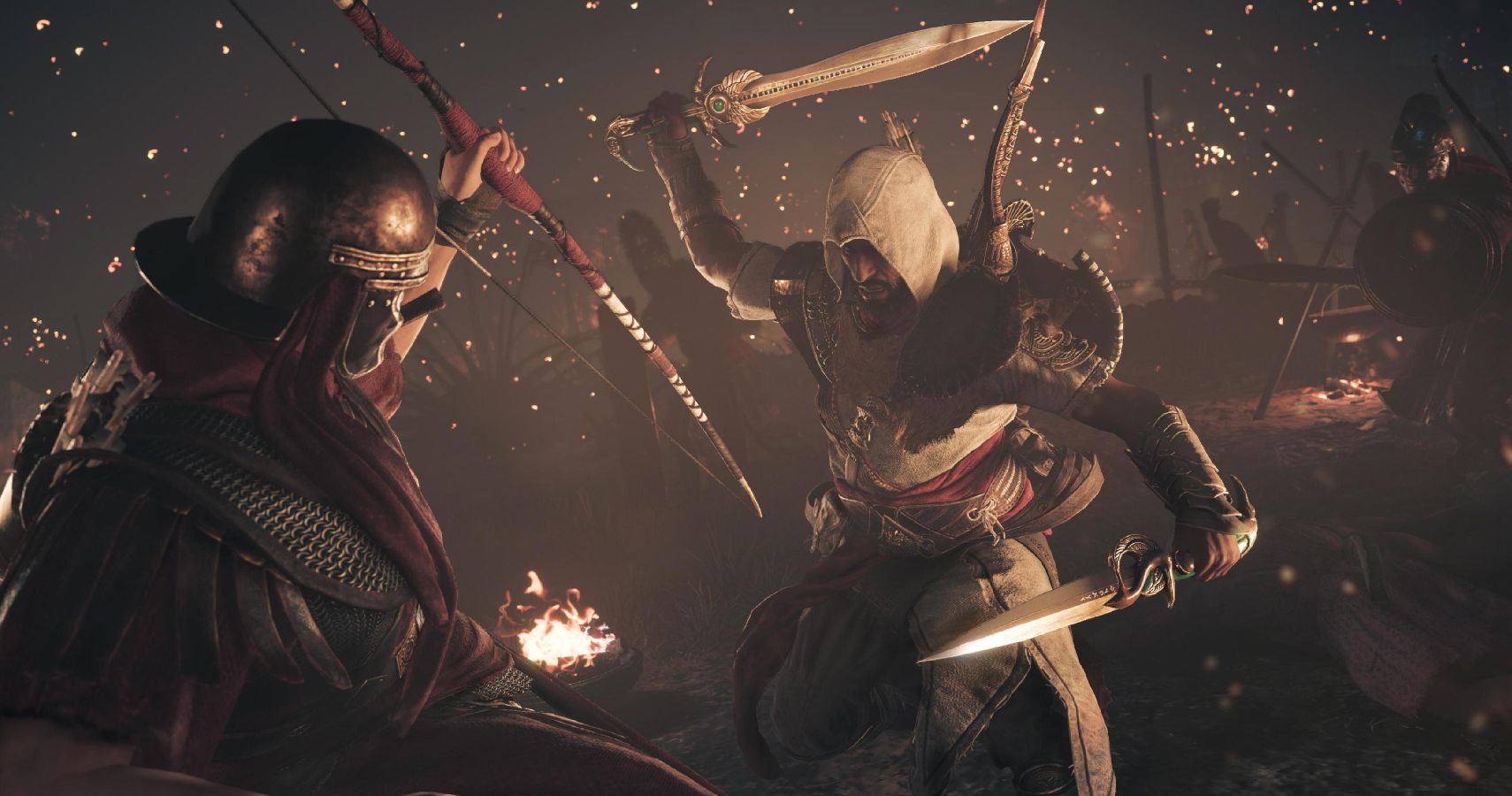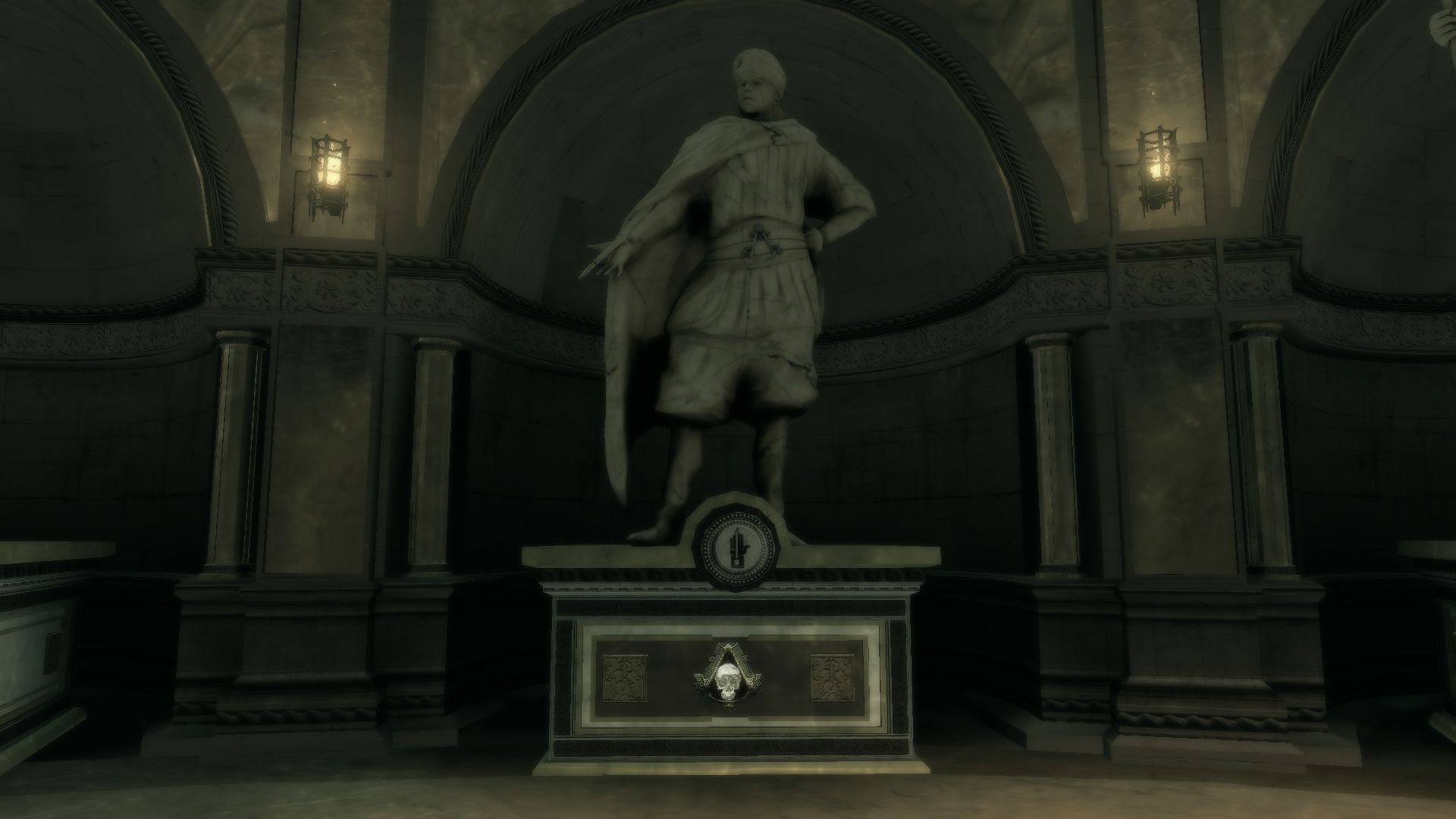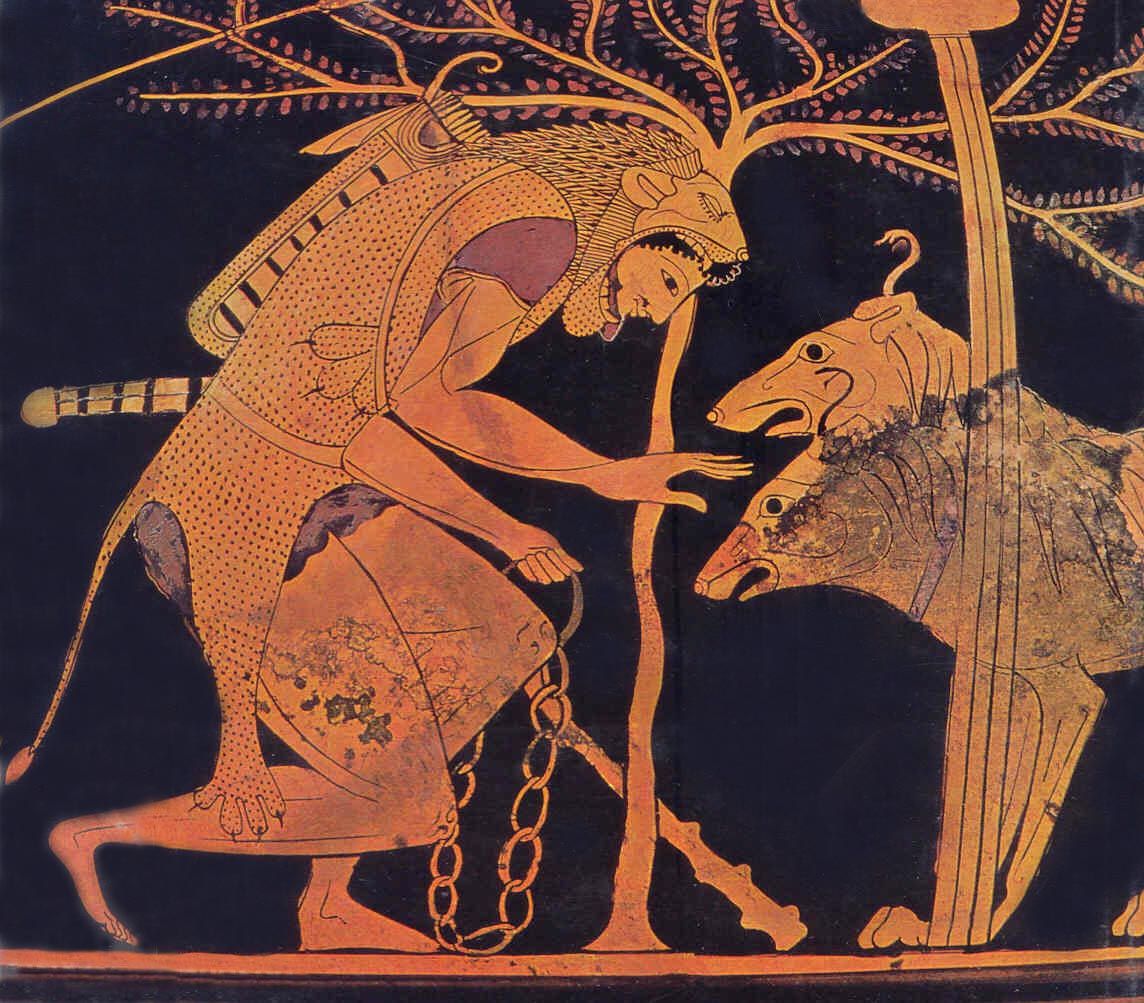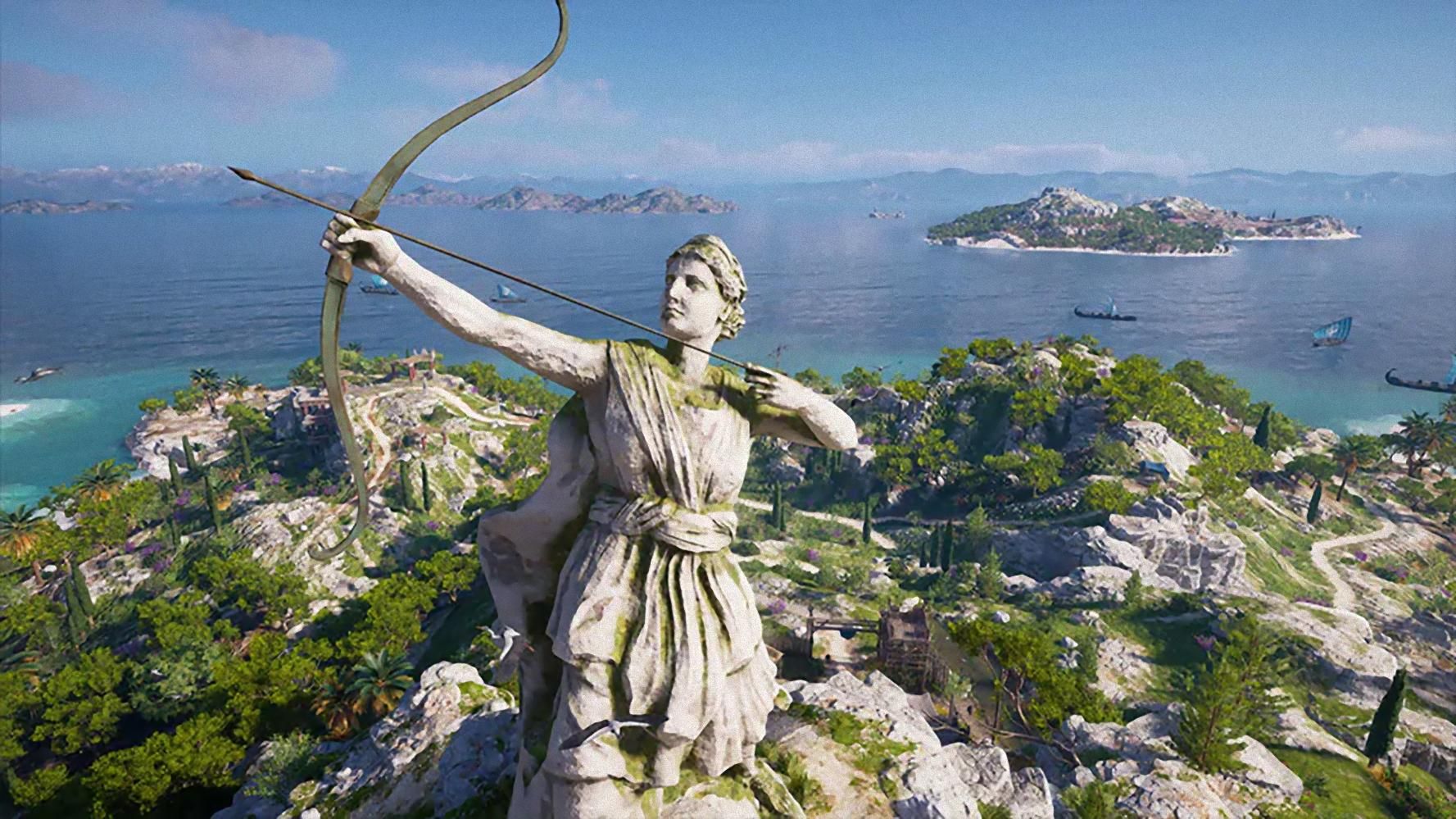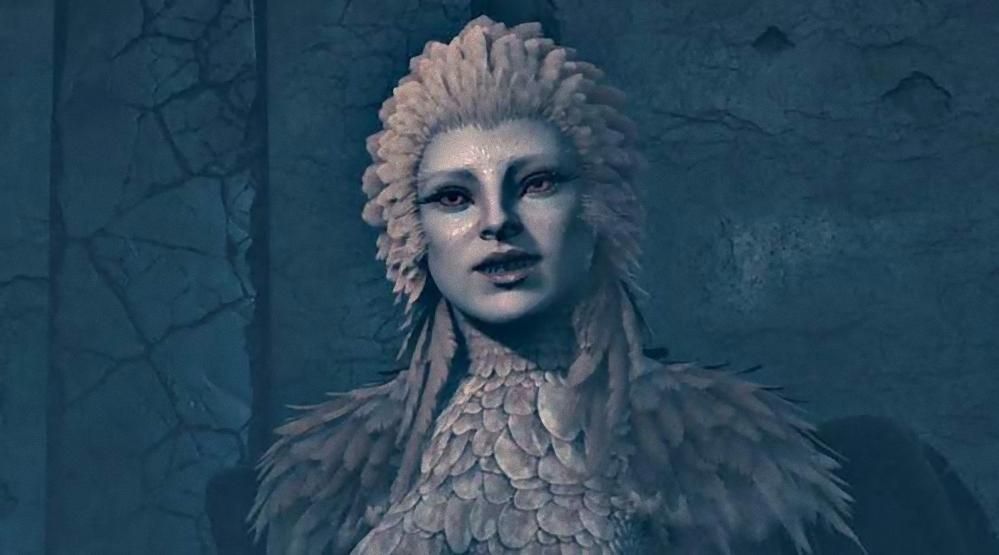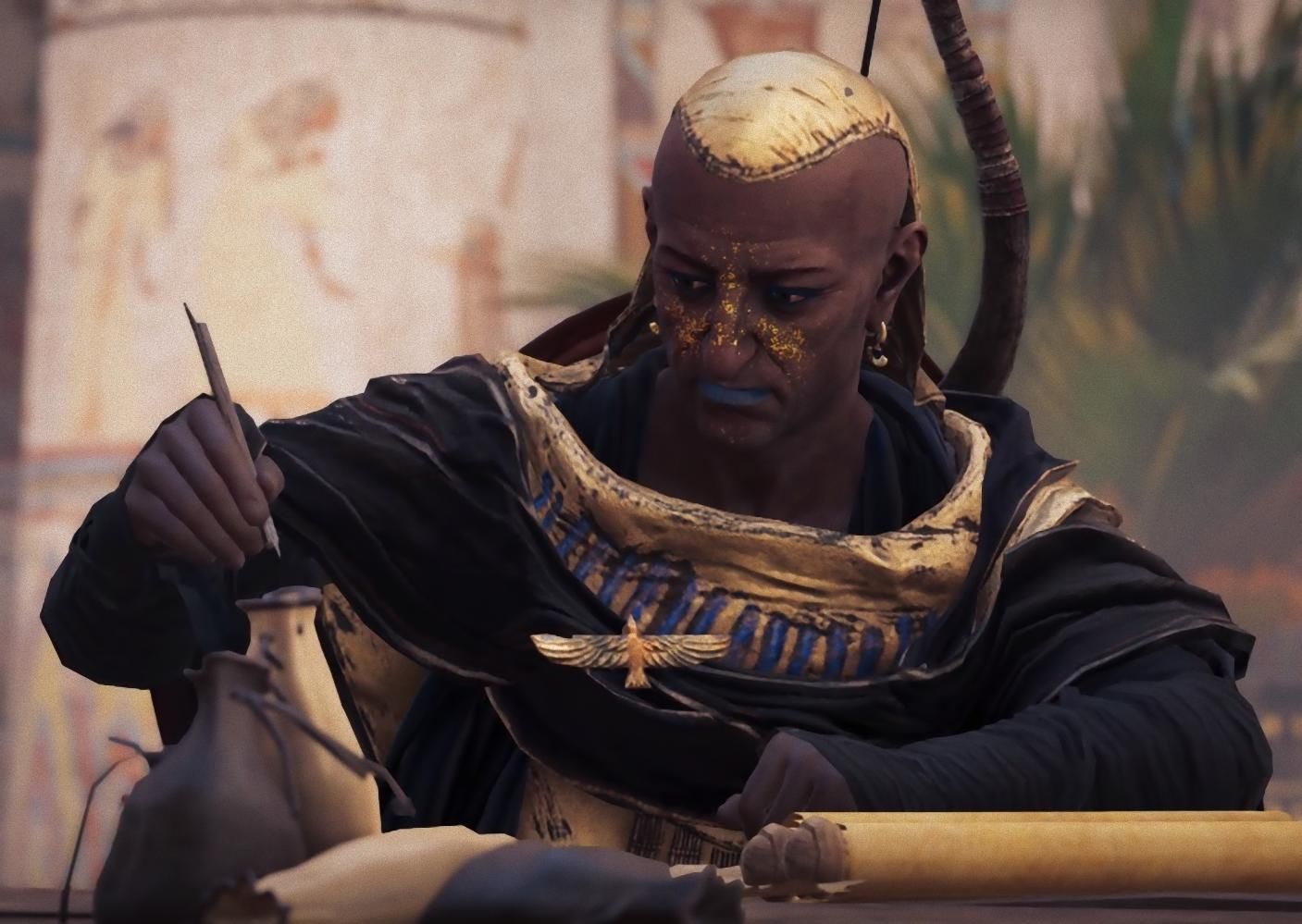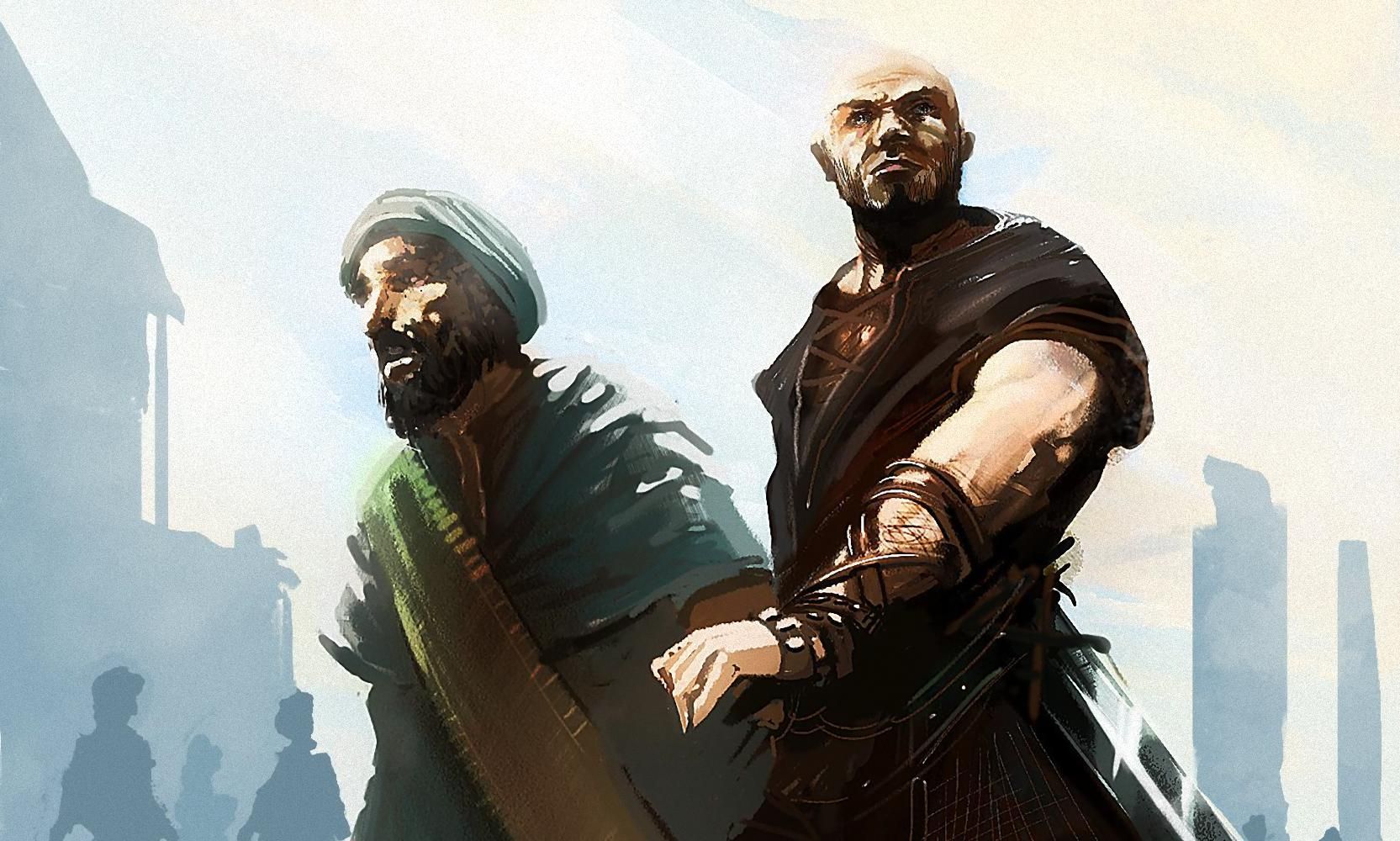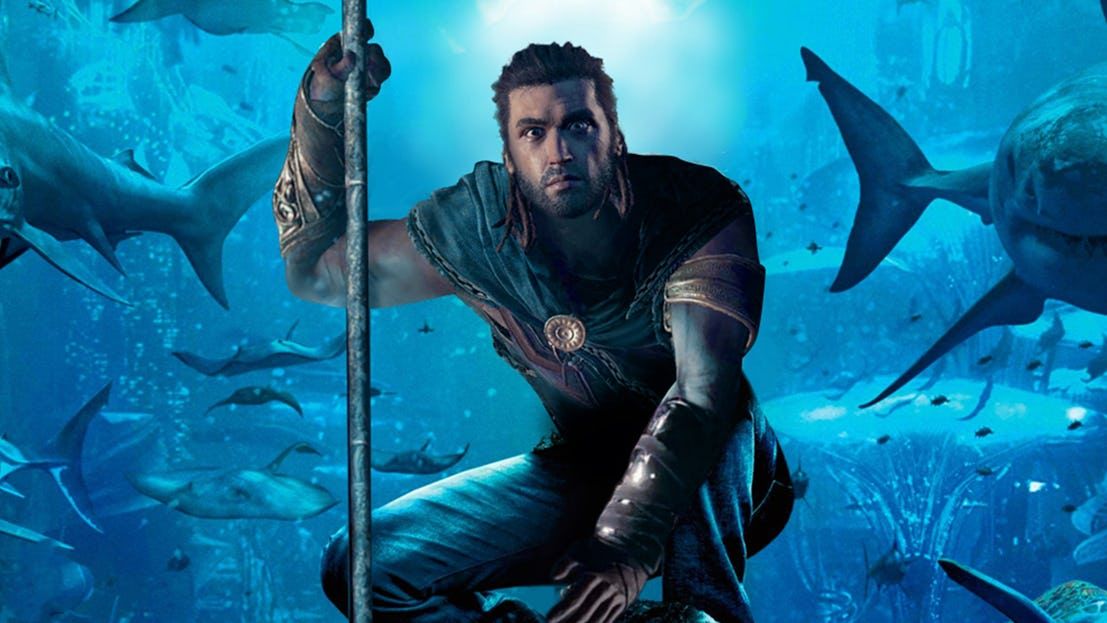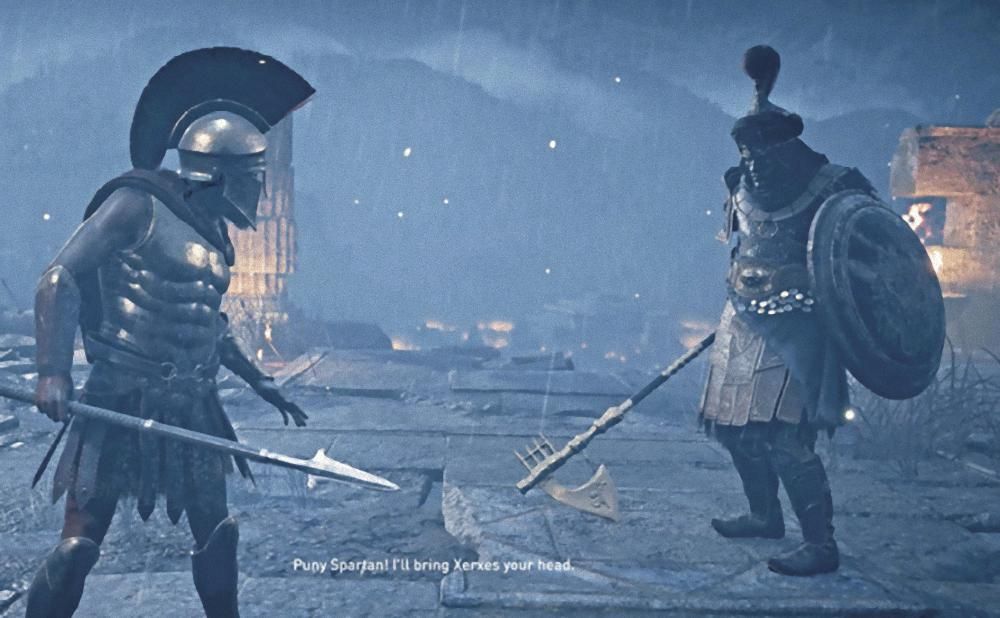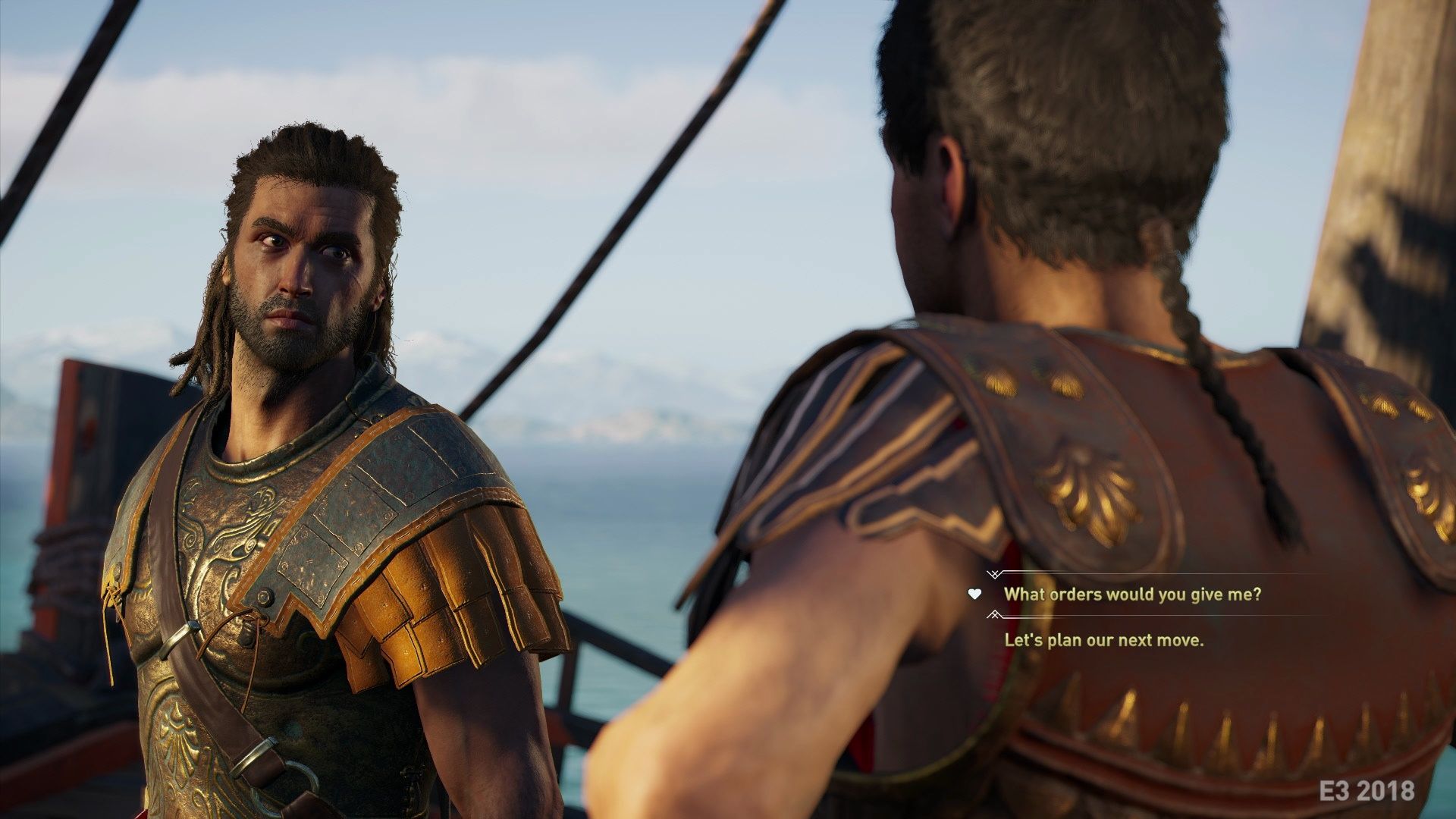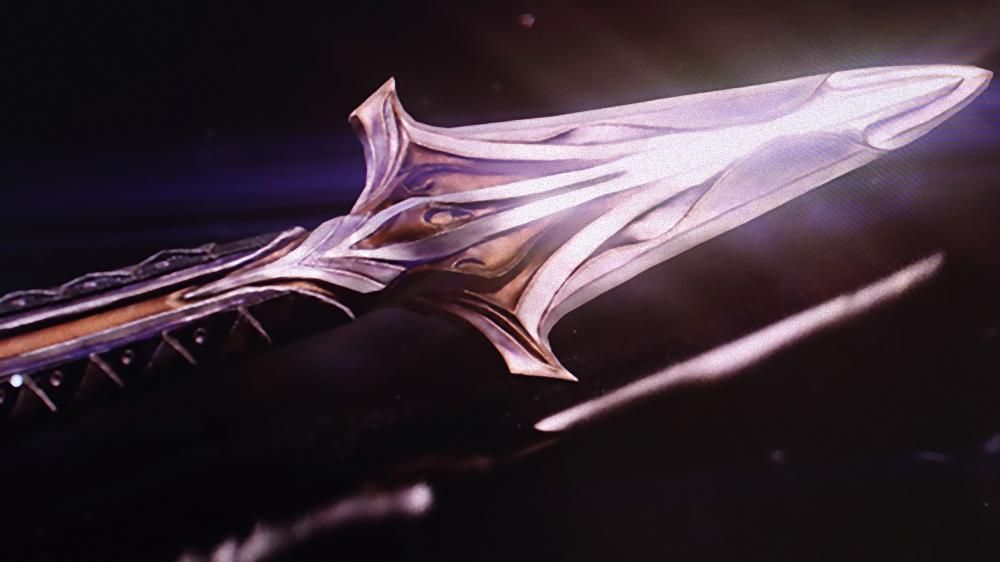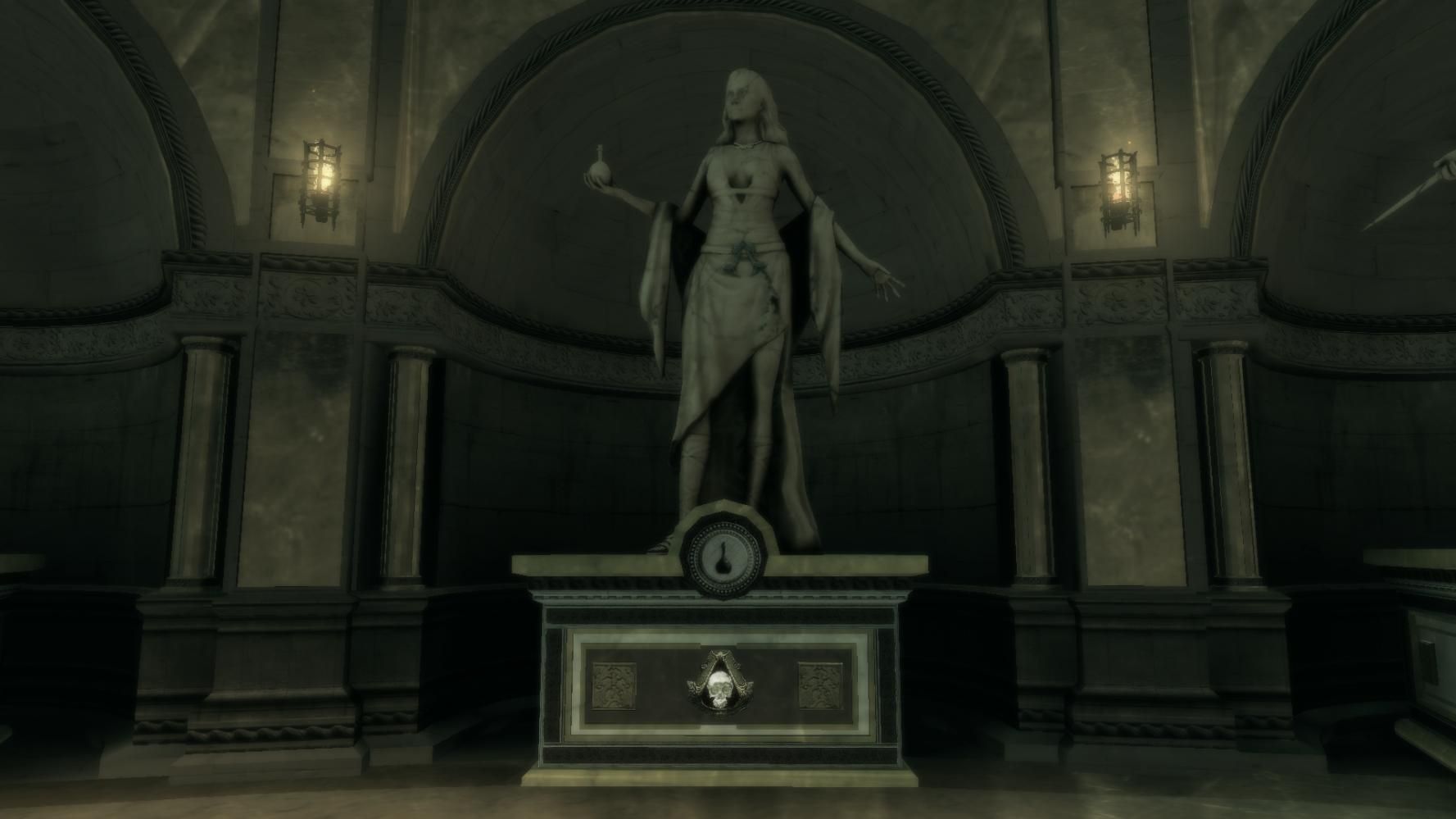Assassin’s Creed: Odyssey has finally released to much anticipation. This is especially true because Assassin’s Creed: Origins was such a good game and a departure from the previous titles. It offered the player far more freedom than ever before, a huge Ancient Egyptian landscape to explore and mechanics that borrowed a lot from The Witcher 3 while keeping what the made the Assassin’s Creed games so appealing at the peak of their sales.
The biggest appeal for the series is it allows gamers to explore incredible historical recreations of different time periods. Since the series began fans have been hoping that that series would find a way to travel back to ancient times.
Origins fulfilled the hopes of the fans and even exceeded expectations with a story that showed gamers the beginnings of the Brotherhood and the Prot-Templars known as The Order of the Ancients. This time Odyssey takes players even further back in time by 400 years to show us the earliest connections between The Pieces of Eden and the First Civilization.
There is a lot of real history that connects Ancient Greece and Ancient Egypt over hundreds of years and the Assassin’s Creed series has found more ways to connect them to its own lore. Here we take a look at some of the events in the lore that link Odyssey and Origins through novels, comics, and its two biggest games yet.
20 The Cult Of Kosmos (Proto-Templars) Got Started
In the Assassin’s Creed universe, one of the earliest Templar-like orders before The Knights Templar was founded in 1119 was the Cult of Kosmos. They are the antagonists in Assassin’s Creed Odyssey and operated in the shadows just like the Order of the Ancients did in Assassin’s Creed: Origins.
It is likely that The Cult of Kosmos was the very same proto-Templar order that helped Xerxes I rise to power in Persia to fuel their ambitions of taking complete control over Greece.
19 The First Assassin And The Hidden Blade
Those who played Assassin’s Creed: Origins will remember when the lead character Bayek received the Hidden Blade from Cleopatra.
That weapon would then become synonymous with the Assassin Brotherhood which began in Origins.
However, Bayek wasn’t the first Assassin to use the Hidden Blade as the same blade that Cleopatra handed Bayek was also used by Artabanus who later changed his name to Darius. Darius used the signature weapon to assassinate Xerxes I the Persian emperor. DLC based the First Assassin and the Hidden Blade was announced by Ubisoft as part of its season pass.
18 The Babylonian Brotherhood
The Order that the famous Assassin Iltani belonged to became known as the Babylonian Brotherhood. They are considered a precursor to the Assassin’s Brotherhood. Much like the Order of the Ancients in Assassin’s Creed: Origins and The Cult of Kosmos in Assassin’s Creed: Odyssey was to the Templars.
They were a sort of Proto-Brotherhood and many of their beliefs and practices were passed down to their later incarnations. They shared the same goals in stopping the Proto-Templars from using the Pieces of Eden to control empires and kings.
17 Herodotus' Lost Book
Herodotus was a Greek historian and is often referred to today as the Father of History. In 440 BC Herodotus wrote a chronicle of nine books recording the events of the Greco-Persian Wars, politics, religious practices, and ancient cultures.
In Assassin’s Creed: Odyssey, Herodotus is said to have written another book chronicling Kassandra’s adventures during the Peloponnesian War. Unfortunately, the book was lost until it was discovered by Layla Hassan in 2018.
16 Aesop’s Fables And Socrates
Aesop’s Fables which were also known as Aesopica were a collection of fables that were sourced to a slave named Aesop. The collection of stories were said to have been created by Aesop between 620 and 564 BC.
Historically, Plato suggested that his teacher Socrates turned Aesop's fables into verses to help make more sense of the contradictions in the writing. Similarly, in the Assassin’s Creed universe, it is suggested in Assassin’s Creed: Revelations that Socrates who has a significant role in Assassin’s Creed: Odyssey was the true author of the fables.
15 The Legacy Of Hercules
Hercules in Greek mythology was the demi-god son of Zeus and a human woman named Alcmene. In Assassin’s Creed lore Hercules – also known as Herakles – is the son of the Isu scientist Tinia who is also referred to as Jupiter and Zeus in Greek and Roman cultures.
Hercules was also responsible for stealing the Apples of Eden in his Twelve Labours.
In Assassin’s Creed: Origins Bayek obtained the weapon known as Hercules’ Gladius in the Egyptian city of Heraklion. Hercules doesn’t just have connections in Odyssey and Origins but to Ercole Massimo from Assassin’s Creed: Brotherhood, this could potentially mean the some of the planned DLC for Odyssey will date even further back.
14 Mykonos The Island That Hercules Built
In Assassin’s Creed: Odyssey Kassandra – or Alexios depending on who you play as – will visit the island of Mykonos in the Aegean Sea. According to Greek legend Mykonos was built from bodies of fallen giants that were defeated by Hercules. It’s possible these giants were descendants of the Isu or their machines.
In Assassin’s Creed: Odyssey the island of Mykonos is important because it is governed by a member of the Cult of Kosmos known Podarkes. Podarkes is a powerful Greek strongman that is determined to hunt down the Misthios’ family.
13 The Enigmatic Sphinx
In addition to being able to scale the Pyramids, The Great Sphinx of Giza was one of the key attractions and landmarks in Assassin’s Creed: Odyssey. However, even though the Sphinx is mostly associated with the Ancient Egyptians, the mythical creature is linked to several ancient cultures.
In both Greek and Egyptian cultures, they were looked upon as powerful guardians to tombs and temples. As a result, the Sphinx appears in both Origins and Odyssey setting up puzzles and riddles for Bayek and Alexias/Kassandra.
12 Layla Hassan The Modern Day Link
Layla Hassan is the modern day protagonist from Assassin’s Creed: Origins and even though her story only accounts for a small part of the game’s narrative it’s still very significant. More importantly, Layla is what connects the two games more so than her ancestors. Origins focused on the beginnings of the Brotherhood and Odyssey ties series’ lore to the First Civilization and the Pieces of Eden.
After the events of Origins, Layla agreed to work with the Brotherhood while her former employers Abstergo the modern day Templars try to capture her. However, when the game begins she is not a member of the Assassins.
11 The Misthios Are Precursors To The Assassins
The Misthios in Assassin’s Creed: Odyssey are Greek mercenaries that consisted of Kassandra and Alexios. In addition, because of the code that they followed and their opposition from the Cult of Kosmos they became the precursors to the Assassin Brotherhood.
The events that led to Kassandra and Alexios taking the path of the Assassin were prophesied by the Oracle of Apollo. The Oracle foresaw that Alexios would bring about the downfall of Sparta and that he was to be thrown off Mount Taygetos.
10 The Oracle Of Apollo Connection
In ancient Greek and Roman cultures, Apollo is the god of knowledge, poetry, art, aesthetics, and music. He is the son of Zeus and Leto, the twin of Artemis and he is one the twelve Olympians of the Greek pantheon.
The Oracles of Apollo feature heavily in both Assassin’s Creed: Origins and Assassin’s Creed: Odyssey.
In Origins the Oracle was visited by the Medjay Bayek at the sanctuary located in the Green Mountains of Cyrenaica and in Odyssey her prophecy foresaw the fate of Sparta at the hands of Alexios.
9 The Oracle Of Amun Branches The Two Storylines
The Oracle of Amun resided in Siwa the home location of Assassin’s Creed: Origins lead character Bayek. However, long before Bayek encountered the Oracle in his own story almost 300 years later the Oracle met Alexander the Great.
The Oracle told Alexander that he was a son of Zeus the Greek name for the Isu scientist of the First Civilization known as Tinia. The Oracles Temple was built directly above an Isu Vault which led Bayek on to his journey of revenge in Origins.
8 Pythagoras And Hermes Play A Big Role
Hermes Trismegistus is an Isu that is worshipped as a god in both Ancient Greek and Ancient Egyptian cultures. He is said to be the god of alchemy and magic and was worshipped by a cult known as the Hermeticists.
The first member of this cult was Pythagoras an ancient Greek philosopher, scholar, and mathematician after an encounter in the desert. During this meeting, Hermes named Pythagoras as his successor and handed him a staff of Eden. Pythagoras plays a huge part in several Assassin’s Creed games and novels including Origins and especially Odyssey.
7 The Lost City Of Atlantis
The Lost city of Atlantis is a fictional island that was supposedly the home to an advanced civilization that lost favor with the gods and was lost forever after sinking into the Atlantic Ocean. Experts and conspiracy theorists have been debating for years as to whether the island actually existed or if Plato drew inspiration from Egyptian records of the volcanic eruption of Thera.
In the Assassin’s Creed lore Atlantis is an Isu Temple that you can unlock in a side quest in Assassin’s Creed: Odyssey. In addition, the upcoming downloadable content for Odyssey will be based around Kassandra’s history with the Lost City (presumably).
6 The Battle Of Thermopylae
It was during The Battle of Thermopylae where King Leonidas fell. Also known as The Battle of the 300 Leonidas led the battle against the invading Persian Empire led by Xerxes I an ally of and influenced the proto-Templars.
Also known as The Achaemenid Empire, this was the second time they invaded Greece after the conflict began in 499 BC. The Templar Order’s origins are traced back to this period when the helped Xerxes’ father Darius I ascend to the throne of Persia.
5 The Battle Of 300 'Kicks' Things Off
Many years before the events of Assassin’s Creed: Origins, King Leonidas led 300 Spartans against the Second Persian Invasion of Greece in the battle of Thermopylae.
In the Assassin’s Creed lore King Leonidas was a descendant of the Isu
The Isu is also known as The First Civilization who created the human race to function as a workforce. Leonidas is not only a direct descendant of the ancient first civilization but he is also the grandfather of Alexios and Kassandra the lead characters in Odyssey.
4 The Spear Of Leonidas Is The First Hidden Assassin Blade
King Leonidas’ importance to the plot of Assassin’s Creed: Odyssey doesn’t just stop at being related to Kassandra and Alexias. Around fifty years before the events of Odyssey Leonidas wielded an Isu Spear, a powerful weapon known as the Spear of Leonidas which was also a piece of Eden.
The Spear of Leonidas is the weapon that gets passed on to Alexias or Kassandra, depending on which perspective you play the game from.
In addition, the spear replaces the hidden blade as the main weapon in Odyssey.
3 Artaxerxes III The Persian Pharaoh
With the aid of the Persian Proto-Templars, the Achaemenid Empire led by Artaxerxes III the king of Babylon invaded Egypt in 343 BC. As a result, Artaxerxes III established the thirty-first dynasty of Egypt becoming its Pharaoh.
This put Egypt under Persian rule for the second time allowing for The Order of the Ancients and the Cult of Kosmos to establish more control over the Egyptian and Persian empires.
2 Alexander The Proto-Templar
The Macedonian king Alexander the Great is one of the greatest conquerors in history and he was responsible for the creation of one of the largest empires in ancient history before the age of 30. In the Assassin’s Creed universe Alexander is as important to Greek history as his real-life counterpart.
However, Alexander was associated with the proto-Templar cult The Order of the Ancients.
In relation to the many of the events that begin in Assassin’s Creed Odyssey Alexander conquered the Persian Empire. He did this with the support of the proto-Templars after they gifted him the Trident of Eden a weapon with the same power as The Spear of Leonidas.
1 Iltani The Assassin
As a result of Alexander’s connection to the Proto-Templars, he became the target of an order known as the Babylonian Brotherhood the precursors to the Assassin’s Brotherhood. Iltani was a Persian member of the Brotherhood that lived through Alexander’s conquest by using a weapon of Eden given to him by the Templars.
With a mission from the Brotherhood Illtani successfully infiltrated Alexander’s palace of Nebuchadnezzar II and poisoned him in June 323 BCE.

